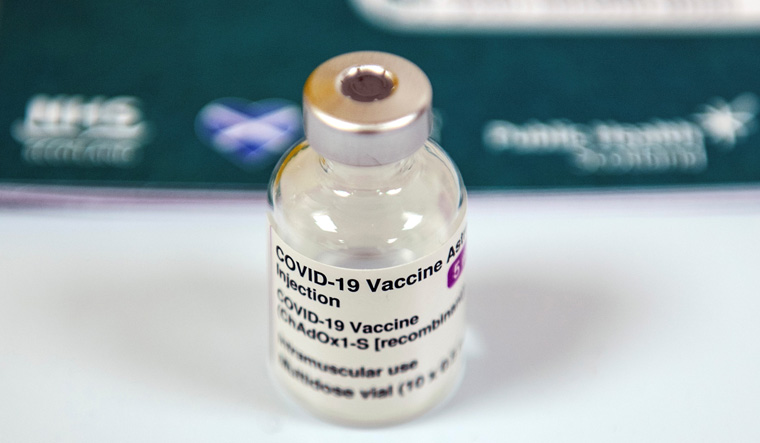The European Medicines Agency, the EU’s drug regulatory, has recommended that “severe allergies” be added to the list of possible side effects of the Oxford-AstraZeneca coronavirus vaccine (sold in India as Covishield).
The Amsterdam-based EMA said it had “recommended an update to the product information to include anaphylaxis and hypersensitivity (allergic reactions) as side effects”, AFP reported.
“The update is based on a review of 41 reports of possible anaphylaxis seen among around 5 million vaccinations in the United Kingdom,” it said in the highlights of the EMA committee that assesses the risk of medications.
The AstraZeneca vaccine’s product information already says people should be kept under “close observation for at least 15 minutes” after getting the jab in case of allergic reactions.
The recommendation comes amid growing concerns over reports of a higher blood clot risk from taking the vaccine.
After Denmark, Norway, Iceland and Bulgaria suspended the use of the vaccine, health officials in multiple European countries pushed back. The World Health Organisation has also said that there is no reason to stop using the vaccine, saying its vaccine advisory committee was examining the safety data coming in and stressed that no causal link had been established between the vaccine and the clotting reported.
"AstraZeneca is an excellent vaccine, as are the other vaccines that are being used," WHO spokeswoman Margaret Harris told reporters in Geneva.
"Yes, we should continue using the AstraZeneca vaccine," she added, stressing that any concerns over safety must be investigated.
UK-based AstraZeneca insisted its jab was safe, adding there is "no evidence" of higher blood clot risks from it.
German Health Minister Jens Spahn said that while the country takes reports of possible harmful effects from vaccines very, very seriously, both the European Medicines Agency and Germany's own vaccine oversight body have said they have no evidence of an increase in dangerous blood clots in connection with the shots.
“I regret that on the basis of the knowledge, as of Friday morning, some countries in the European Union have suspended vaccinations with AstraZeneca,” Spahn told reporters in Berlin.
Thailand has also delayed use of the vaccine, pending an investigation, while Italy and Romania stopped using shots from one particular batch. Austria has also halted use of doses from a single, but different, batch.
That decision followed the death from blood clots of a 49-year-old 10 days after she had been vaccinated, and the hospitalization of a 35-year-old woman. Experts concluded neither complication was related to the vaccine, and Austria's chancellor said Friday that he would be willing to receive the shot to show that he had trust in this vaccine.
With inputs from PTI


